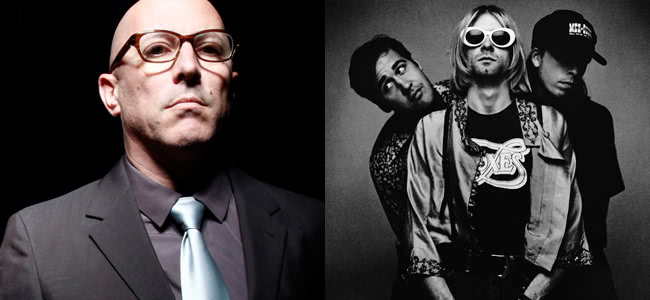During a recent interview with Yahoo! Music, Tool frontman Maynard James Keenan reflected on his long, storied career and chalked much of it up to being in the right place at the right time, saying he tries his best not to take credit for the success of Tool and his various other projects.
“When you start seeing some success, you start believing that your choices, actions, and attitudes are the absolute concrete reason for that success, and that’s where you start going down the rabbit hole,” Maynard said of the success Tool found with the release of their seminal 1996 album Aenima.
But Maynard courted controversy when he went further and used Nirvana and the explosion of grunge music out of Seattle as another example, saying that whilst the band’s involved in that movement were admittedly poised and talented, their success had more to do with being prepared to strike whilst the iron was hot than anything else.
“But it could be just circumstances. It just happened to be a perfect time for Nirvana to emerge ‘cause people were tired of hair bands,” he said. “I don’t know. It might have had nothing to do with Nirvana. It was just timing. I’m not taking anything away from any of the musicians that were on those waves that were about to crest.”
“All due respect to all of those musicians, but I feel that the problem then is that generally those musicians feel like they actually created the wave, when they were just on it and were prepared as it crested,” the singer, who will soon be in the country with Puscifer, added. “That starts to be the poison.”
Maynard’s comments certainly raised a few eyebrows amongst Nirvana fans, but bassist Krist Novoselic actually agrees with the vocalist. “Maynard James Keenan is right that music was set to change in the early ’90s and part of Nirvana’s success was due to timing. I have always said that bands like Faith No More and Jane’s Addiction broke ground for us with the mainstream,” he told Alternative Nation.
“The whole hair band movement was exhausted and musical cycles used to give us new interpretations of rock. I think we are in a post-rock era rooted in the information age. The old paradigm was the ‘push’ media where if you got on rotation with MTV, you could seep in the minds of the public. Today, the game is ‘pull’ media and this, by nature, is decentralised. Nirvana was the last of the pre-internet bands.”

































